Portugal Methane Regulation: Comprehensive Guide to LDAR Compliance
Portugal has taken a significant step towards reducing methane emissions by implementing a comprehensive methane regulation. This groundbreaking legislation aims to tackle one of the most potent greenhouse gases contributing to climate change. The regulation sets ambitious objectives and targets, focusing on key sectors such as oil and gas, agriculture, and waste management.

Overview of Portugal's Methane Regulation
The scope of Portugal’s methane regulation is far-reaching, covering both onshore and offshore activities. It applies to all companies operating within these sectors, regardless of their size or market share. The timeline for implementation is well-defined, with specific deadlines for compliance and reporting. Companies must act swiftly to align their operations with the new requirements and avoid potential penalties.
Key Objectives and Targets
Portugal’s methane regulation has set ambitious goals to reduce methane emissions significantly by 2030. The primary objective is to achieve a 40% reduction in methane emissions compared to 2005 levels. This target is in line with the European Union’s overall climate goals and demonstrates Portugal’s commitment to combating climate change.
To reach this objective, the regulation has established specific targets for each sector. For example, the oil and gas industry must reduce methane emissions by 50%, while the agriculture sector is required to cut emissions by 30%. These targets are based on a thorough analysis of each sector’s contribution to methane emissions and their potential for reduction.
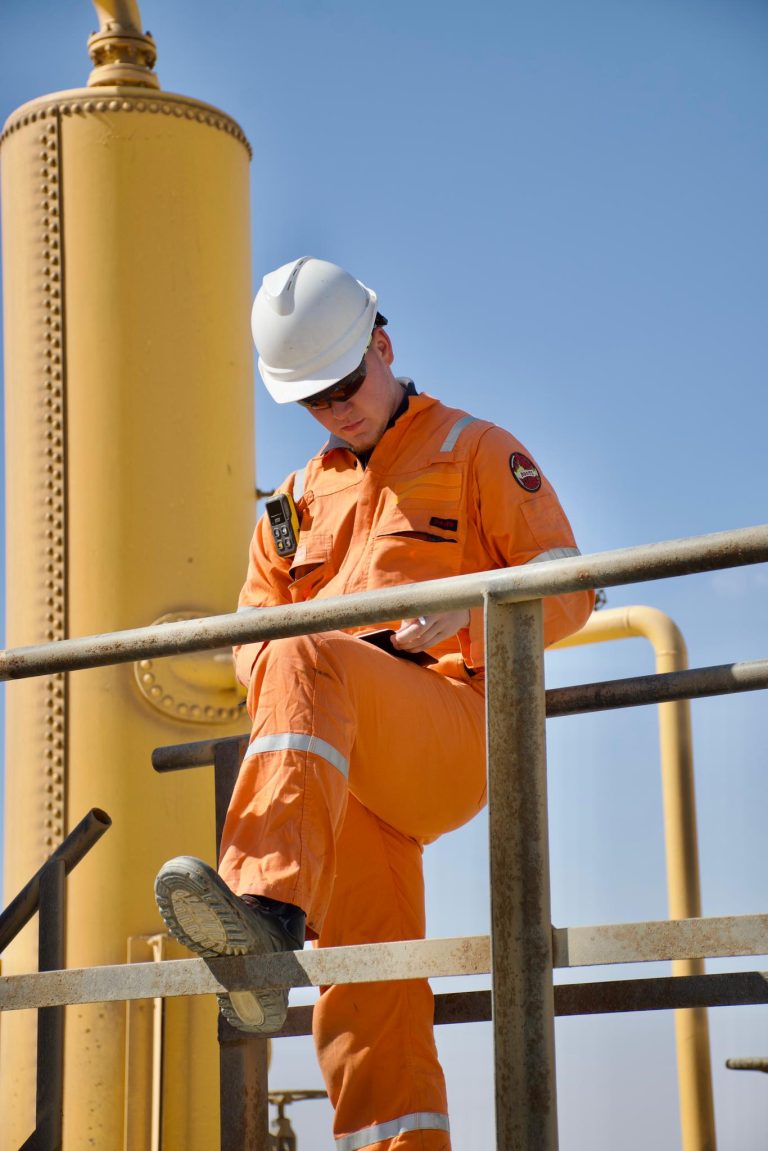
Scope and Applicability
Portugal’s methane regulation covers a wide range of activities and sectors. It applies to all companies involved in the exploration, production, processing, transmission, and distribution of oil and gas. The regulation also extends to agricultural practices, such as livestock farming and manure management, as well as waste management facilities, including landfills and wastewater treatment plants.
The regulation’s comprehensive scope ensures that no significant source of methane emissions is left unaddressed. By targeting all relevant sectors, Portugal aims to achieve a holistic approach to methane reduction, maximizing the overall impact of the regulation.
Timeline for Implementation
To ensure a smooth transition and allow companies to adapt their operations, Portugal’s methane regulation has set a clear timeline for implementation. The deadlines are as follows:
| Sector | Compliance Deadline |
| Oil and Gas | December 31, 2023 |
| Agriculture | June 30, 2024 |
| Waste Management | December 31, 2024 |
Companies must submit detailed plans outlining their strategies for meeting the methane reduction targets within six months of the regulation’s entry into force. Regular progress reports are required to ensure that companies remain on track and can address any challenges promptly.
Leak Detection and Repair (LDAR) Requirements
Leak Detection and Repair (LDAR) is a critical component of Portugal’s methane regulation, particularly for the oil and gas sector. LDAR programs are designed to identify and fix methane leaks quickly, minimizing their environmental impact. The regulation sets clear requirements for LDAR, ensuring that companies adopt best practices and use state-of-the-art technologies.
Under the new regulation, oil and gas companies must implement comprehensive LDAR programs that cover all potential sources of methane leaks, including:
- Wellheads
- Compressors
- Pipelines
- Storage facilities
Companies are required to conduct regular LDAR surveys, with the frequency depending on the type of facility and its methane emission potential. For example, high-risk facilities must be surveyed quarterly, while low-risk facilities may be surveyed annually.

LDAR Techniques and Methodologies
Portugal’s methane regulation encourages the use of advanced LDAR techniques and methodologies to ensure the most effective leak detection and repair. Companies can choose from a range of proven techniques, each with its own strengths and limitations. Some of the most common LDAR techniques include:
Optical Gas Imaging (OGI)
Optical Gas Imaging (OGI) is a highly effective LDAR technique that uses infrared cameras to visualize methane leaks. OGI cameras can detect methane emissions from a distance, making them ideal for surveying large facilities or hard-to-reach areas. The regulation specifies the minimum sensitivity and performance requirements for OGI cameras to ensure reliable leak detection.
Flame Ionization Detectors (FID)
Flame Ionization Detectors (FID) are portable devices that can accurately measure methane concentrations in the air. FIDs are particularly useful for pinpointing the exact location of a leak, as they can provide real-time readings. The regulation requires companies to use FIDs with a minimum detection limit of 5 parts per million (ppm) to ensure accurate leak identification.
Acoustic Leak Detection
Acoustic Leak Detection is a non-invasive technique that uses high-sensitivity microphones to detect the unique sound of methane leaks. This method is particularly effective for identifying leaks in underground pipelines or other hard-to-access areas. The regulation specifies the minimum sensitivity and frequency range for acoustic leak detection equipment.
Soap Bubble Screening
Soap Bubble Screening is a simple yet effective LDAR technique that involves applying a soap solution to potential leak points and observing bubble formation. This method is often used as a first-line screening tool to quickly identify leaks before employing more advanced techniques. The regulation requires companies to use soap solutions with a minimum bubble formation rate of 50 bubbles per minute for reliable leak detection.
LDAR Survey Frequency
The frequency of LDAR surveys is a critical factor in the effectiveness of leak detection and repair programs. Portugal’s methane regulation sets clear requirements for survey frequency based on the type of facility and its methane emission potential. The minimum survey frequencies are as follows:
Facility Type | Survey Frequency |
High-risk facilities | Quarterly |
Medium-risk facilities | Semi-annually |
Low-risk facilities | Annually |
Companies must also conduct additional surveys following any significant process changes or equipment modifications that could potentially increase methane emissions. This ensures that any new leaks are identified and repaired promptly.
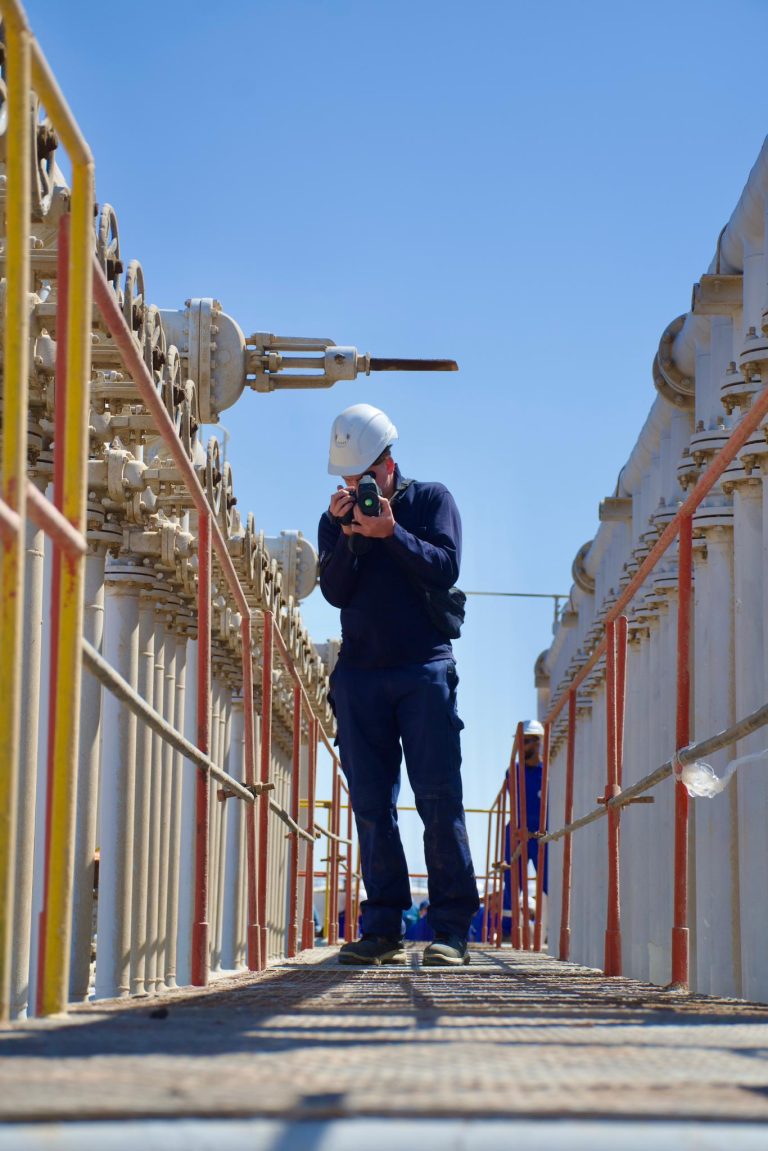

Leak Definition and Classification
- Category 1: Leaks with a methane concentration of 50,000 ppm or higher
- Category 2: Leaks with a methane concentration between 10,000 and 49,999 ppm
- Category 3: Leaks with a methane concentration between 1,000 and 9,999 ppm
Recordkeeping and Reporting Obligations
- Accurate and comprehensive recordkeeping is essential for demonstrating compliance with Portugal’s methane regulation. Companies must maintain detailed records of their LDAR programs, leak repairs, and methane emissions. These records must be kept for a minimum of five years and made available to regulators upon request.
The regulation requires companies to submit annual reports on their methane emissions and LDAR activities. These reports must include:
- Total methane emissions for the reporting year
- Number and classification of leaks detected
- Leak repair status and timeframes
- LDAR survey methods and frequencies
- Challenges encountered and corrective actions taken
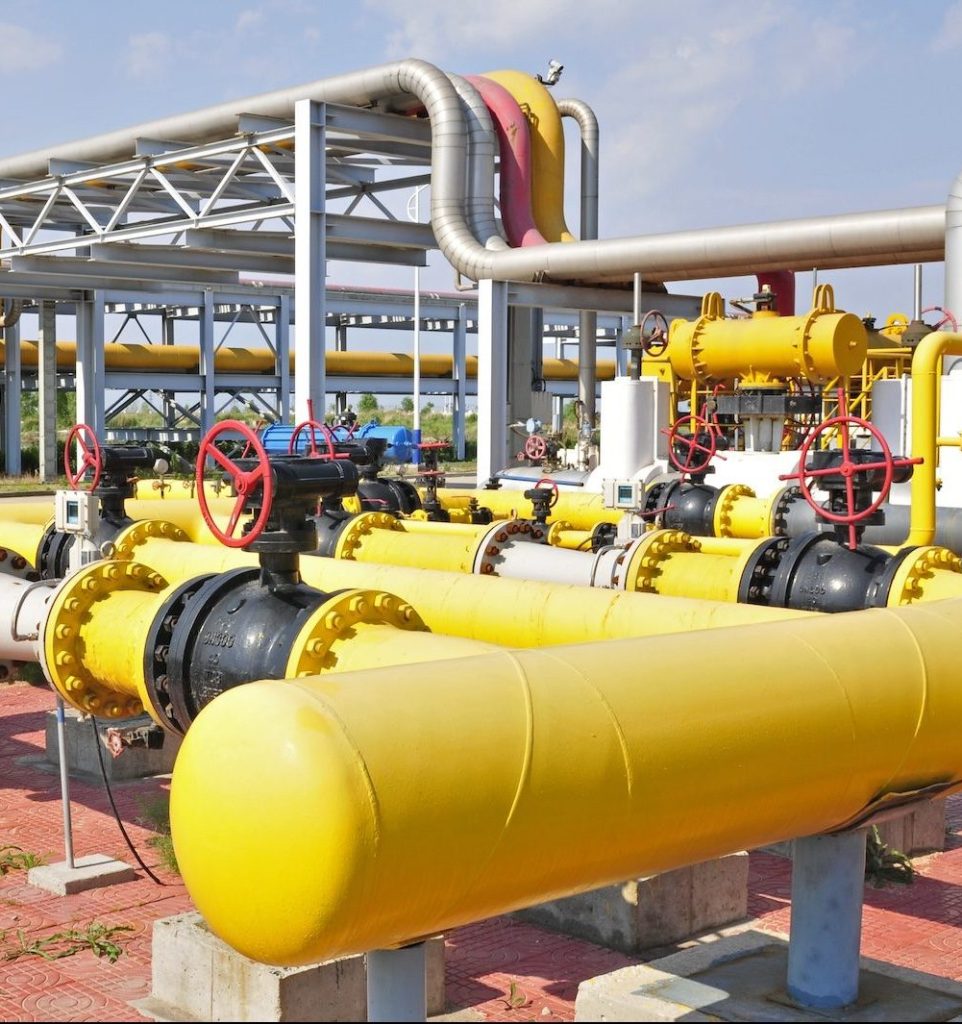
LDAR Survey Documentation
Companies must document all LDAR surveys conducted under Portugal’s methane regulation. Survey documentation must include:
- Date, time, and location of the survey
- LDAR techniques and equipment used
- Name and qualifications of the personnel conducting the survey
- Detailed description of any leaks detected, including their location, classification, and methane concentration
- Photos or videos of leaks, if applicable
Proper documentation is essential for demonstrating compliance and tracking the effectiveness of LDAR programs over time. Companies should establish standardized documentation procedures to ensure consistency and accuracy across all surveys.
Leak Repair Records
- Date and time of the repair
- Description of the repair method and materials used
- Name and qualifications of the personnel performing the repair
- Results of the post-repair verification survey
Annual Reporting Requirements
Companies must document all LDAR surveys conducted under Portugal’s methane regulation. Survey documentation must include:
- Date, time, and location of the survey
- LDAR techniques and equipment used
- Name and qualifications of the personnel conducting the survey
- Detailed description of any leaks detected, including their location, classification, and methane concentration
- Photos or videos of leaks, if applicable
Proper documentation is essential for demonstrating compliance and tracking the effectiveness of LDAR programs over time. Companies should establish standardized documentation procedures to ensure consistency and accuracy across all surveys.
Best Practices for LDAR Compliance in Portugal
Complying with Portugal’s methane regulation requires a proactive and systematic approach to LDAR. Companies must develop and implement effective LDAR programs that go beyond the minimum regulatory requirements. By adopting best practices and continuously improving their LDAR processes, companies can minimize methane emissions, reduce environmental impact, and demonstrate their commitment to sustainability.
Some key best practices for LDAR compliance in Portugal include:
- Establishing a dedicated LDAR team with clearly defined roles and responsibilities
- Providing comprehensive training and certification for LDAR personnel
- Implementing advanced LDAR technologies and techniques, such as Optical Gas Imaging (OGI) and Flame Ionization Detectors (FID)
- Conducting frequent LDAR surveys, beyond the minimum regulatory requirements
- Prioritizing leak repairs based on leak classification and potential environmental impact
- Integrating LDAR into overall maintenance and asset management strategies
- Continuously monitoring and analyzing LDAR data to identify trends and improvement opportunities
By adopting these best practices, companies can develop robust and effective LDAR programs that not only ensure compliance with Portugal’s methane regulation but also drive significant reductions in methane emissions.
Developing an Effective LDAR Program
Developing an effective LDAR program is essential for achieving compliance with Portugal’s methane regulation. A well-designed LDAR program should include:
- Clear objectives and targets aligned with the regulation
- Detailed procedures for LDAR surveys, leak classification, and repairs
- Roles and responsibilities for LDAR personnel
- Training and certification requirements
- Recordkeeping and reporting processes
- Continuous improvement mechanisms
Companies should engage cross-functional teams, including operations, maintenance, and environmental staff, in the development of their LDAR programs. This collaborative approach ensures that the program is comprehensive, practical, and tailored to the company’s specific needs and challenges.
Training and Certification of LDAR Personnel
Properly trained and certified LDAR personnel are critical for the success of any LDAR program. Companies must invest in comprehensive training and certification for their LDAR staff to ensure that they have the necessary knowledge, skills, and competencies to perform their duties effectively.
LDAR training should cover topics such as:
- LDAR techniques and methodologies
- Leak detection and classification
- Repair procedures and best practices
- Recordkeeping and reporting requirements
- Health and safety considerations
Companies should also ensure that their LDAR personnel receive regular refresher training and updates on new technologies, regulations, and industry best practices. Investing in the continuous development of LDAR staff not only enhances the effectiveness of LDAR programs but also demonstrates a company’s commitment to compliance and sustainability.
Integrating LDAR with Maintenance Activities
- Incorporating LDAR surveys into routine maintenance schedules
- Coordinating leak repairs with planned maintenance shutdowns
- Using LDAR data to inform preventive maintenance strategies
- Leveraging technology to streamline LDAR and maintenance workflows
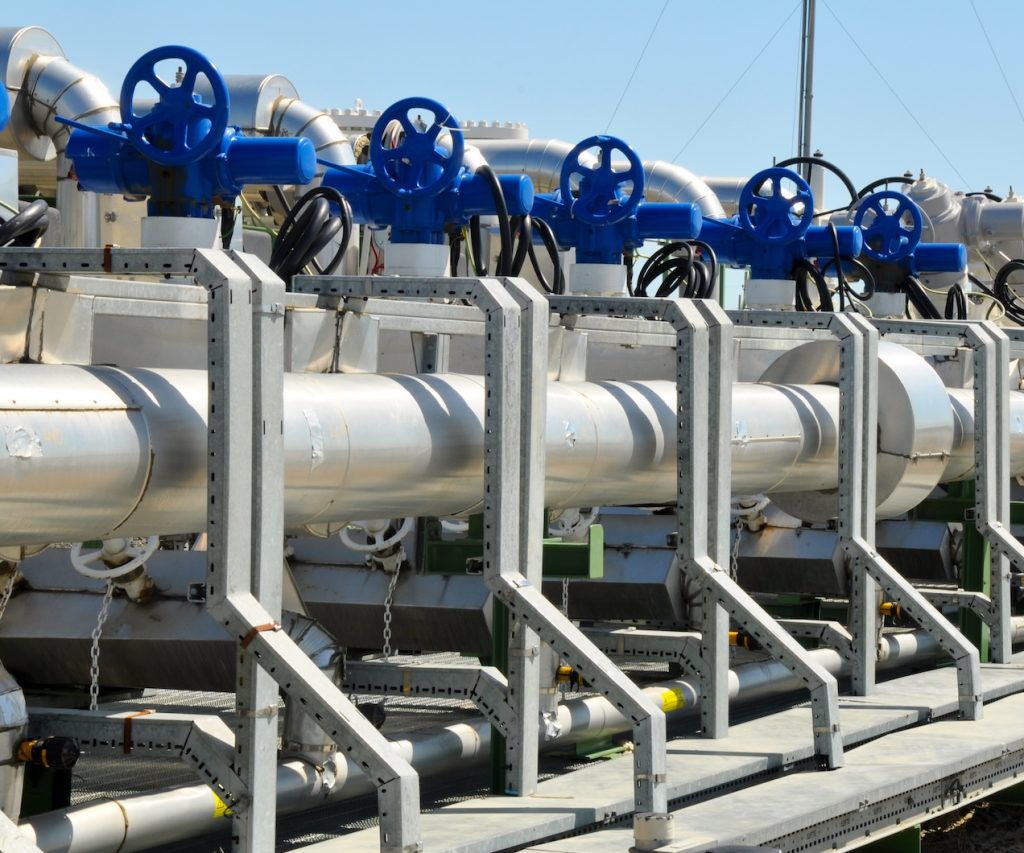

Continuous Improvement and Auditing
Continuous improvement is a critical component of any effective LDAR program. Companies should regularly review and assess their LDAR processes, identify areas for improvement, and implement corrective actions as needed. This iterative approach ensures that LDAR programs remain effective, efficient, and aligned with best practices and regulatory requirements.
In addition to internal continuous improvement efforts, companies should also conduct periodic third-party audits of their LDAR programs. Independent audits provide an objective assessment of LDAR performance, identify potential gaps or weaknesses, and recommend opportunities for improvement. Audits can also help companies demonstrate their commitment to compliance and transparency to regulators and stakeholders.
Technology Solutions for Streamlined LDAR Management
- LDAR software and data management systems
- Advanced leak detection technologies, such as OGI cameras and continuous monitoring systems
- Predictive maintenance tools that use LDAR data to identify potential leak risks
- Mobile apps and field data collection tools for LDAR surveys and repairs
- Cloud-based platforms for data storage, analysis, and reporting
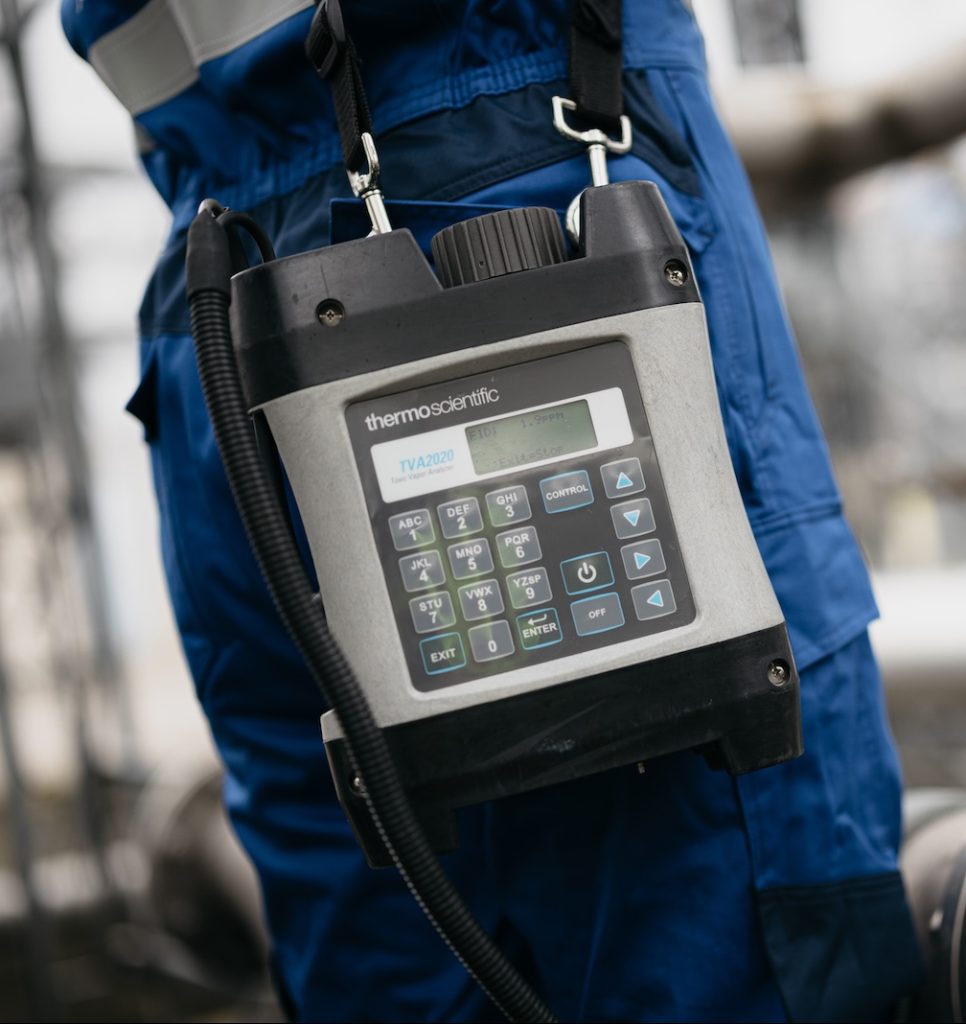

LDAR Software and Data Management Systems
LDAR software and data management systems are essential tools for managing the complex data and workflows associated with leak detection and repair programs. These systems provide a centralized platform for storing, analyzing, and reporting LDAR data, enabling companies to:
- Plan and schedule LDAR surveys
- Track leak detection and repair activities
- Classify and prioritize leaks based on severity and regulatory requirements
- Generate compliance reports and performance metrics
- Identify trends and improvement opportunities
Advanced LDAR software solutions also offer features such as mobile data collection, GPS integration, and real-time alerts, which can further streamline LDAR processes and improve data accuracy. By investing in robust LDAR software and data management systems, companies can ensure that their LDAR programs are efficient, effective, and compliant with Portugal’s methane regulation.
Advanced Leak Detection Technologies
- Optical Gas Imaging (OGI) cameras: These infrared cameras can visualize methane leaks in real-time, making leak detection faster and more efficient.
- Continuous monitoring systems: These systems use fixed sensors to continuously monitor methane levels, enabling early leak detection and reducing the need for manual surveys.
- Drone-based LDAR: Drones equipped with OGI cameras or other leak detection sensors can quickly survey large areas, reducing the time and cost of traditional LDAR surveys.
- Advanced analytics: Machine learning and artificial intelligence algorithms can analyze LDAR data to identify leak patterns, predict potential leaks, and optimize repair strategies.
Remote Monitoring and Predictive Maintenance
Remote monitoring and predictive maintenance are emerging technologies that can help companies optimize their LDAR programs and prevent leaks before they occur. By leveraging sensors, IoT devices, and advanced analytics, companies can:
- Continuously monitor methane levels and other key parameters
- Detect anomalies and potential leak risks in real-time
- Predict when equipment is likely to fail or leak based on historical data and machine learning algorithms
- Optimize maintenance schedules and prioritize repairs based on risk and criticality
These technologies not only improve the effectiveness of LDAR programs but also enable companies to shift from reactive to proactive leak management strategies. By preventing leaks before they occur, companies can reduce methane emissions, minimize environmental impact, and demonstrate their commitment to sustainability and compliance.
Best Practices for LDAR Compliance in Portugal
Navigating the complexities of Portugal’s methane regulation and implementing an effective LDAR program can be challenging for many companies. Partnering with an experienced and knowledgeable LDAR service provider, such as TPE Europe, can help companies streamline their compliance efforts, reduce costs, and achieve better environmental outcomes.
TPE Europe offers a range of LDAR services and solutions tailored to the specific needs of companies operating in Portugal. With a deep understanding of the regulatory landscape and a proven track record of success, TPE Europe is well-positioned to support companies in achieving and maintaining compliance with Portugal’s methane regulation.
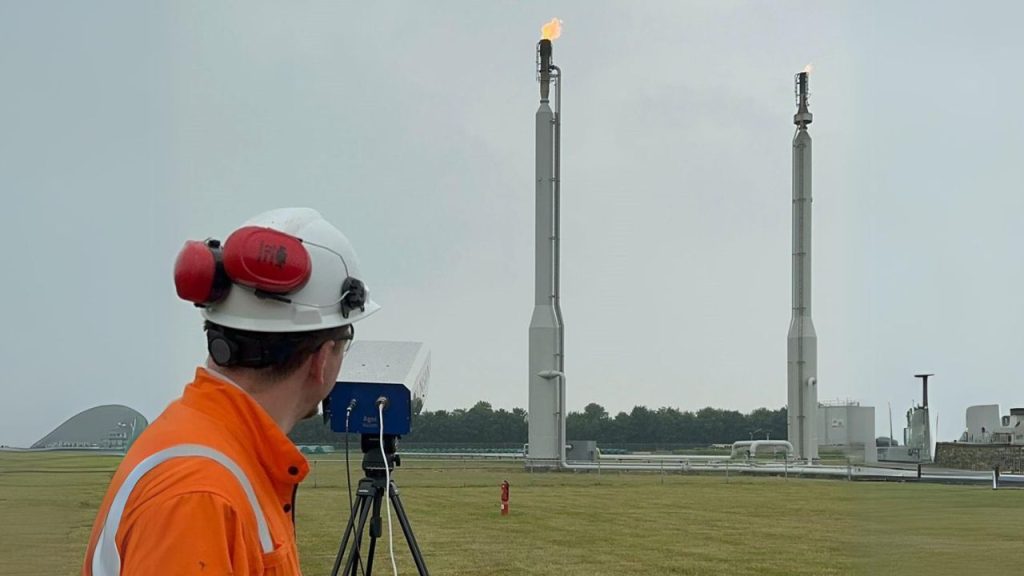
Expertise in Portugal's Methane Regulation
TPE Europe’s team of LDAR experts has extensive knowledge of Portugal’s methane regulation and its implications for various industries. They closely monitor regulatory developments and best practices to ensure that their clients are always up-to-date and compliant.
By partnering with TPE Europe, companies can benefit from:
- Detailed understanding of LDAR requirements and timelines
- Guidance on LDAR best practices and industry standards
- Support in developing and implementing compliant LDAR programs
- Assistance with recordkeeping, reporting, and regulatory submissions
- Ongoing support and advice to maintain compliance and optimize LDAR performance
With TPE Europe’s expertise, companies can navigate the complexities of Portugal’s methane regulation with confidence, knowing that they have a trusted partner to guide them every step of the way.
Customized LDAR Solutions for Portuguese Companies
Every company is unique, with its own set of challenges, assets, and operational considerations. That’s why TPE Europe offers customized LDAR solutions tailored to the specific needs of Portuguese companies.
TPE Europe’s LDAR specialists work closely with clients to understand their operations, identify potential leak sources, and develop targeted LDAR strategies that optimize leak detection and repair efforts. This customized approach ensures that LDAR programs are effective, efficient, and aligned with each company’s unique requirements and constraints.
TPE Europe’s customized LDAR solutions can include:
- LDAR program design and implementation
- LDAR surveys and leak detection using advanced technologies
- Leak classification and prioritization
- Repair management and tracking
- Recordkeeping and reporting
- Training and certification for LDAR personnel
- Continuous improvement and optimization of LDAR processes
By partnering with TPE Europe for customized LDAR solutions, Portuguese companies can ensure that their LDAR programs are not only compliant but also optimized for their specific needs and challenges.
Proven Track Record of Successful LDAR Implementation
TPE Europe has a proven track record of successfully implementing LDAR programs for companies across various industries in Portugal and beyond. Their experience, expertise, and commitment to excellence have earned them a reputation as a trusted LDAR partner.
Some of TPE Europe’s notable LDAR successes include:
- Implementing a comprehensive LDAR program for a major oil and gas company in Portugal, resulting in a 45% reduction in methane emissions within the first year
- Designing and executing a customized LDAR solution for a large agricultural operation, enabling them to achieve full compliance with Portugal’s methane regulation
- Providing ongoing LDAR support and optimization services for a leading waste management company, helping them continuously improve their leak detection and repair performance
By choosing TPE Europe as their LDAR partner, Portuguese companies can benefit from this proven track record of success and the peace of mind that comes with working with an experienced and trusted provider.
In conclusion, Portugal’s methane regulation represents a significant step forward in the fight against climate change. By setting ambitious targets, requiring comprehensive LDAR programs, and promoting best practices and technology adoption, the regulation is driving meaningful reductions in methane emissions across key industries.
For companies operating in Portugal, achieving and maintaining compliance with the methane regulation is not just a legal obligation but also an opportunity to demonstrate their commitment to sustainability and environmental stewardship. By partnering with experienced LDAR providers like TPE Europe, companies can navigate the complexities of the regulation, implement effective LDAR programs, and contribute to a cleaner, more sustainable future for Portugal and beyond.
CCO TP Europe.
Joey, Chief Commercial Officer at TP Europe, thrives in sales, drawing satisfaction from client happiness and the company's growth. His dedication to staying connected to the field and ambition for global expansion are key to driving our mission forward.
Published: Tp Europe
